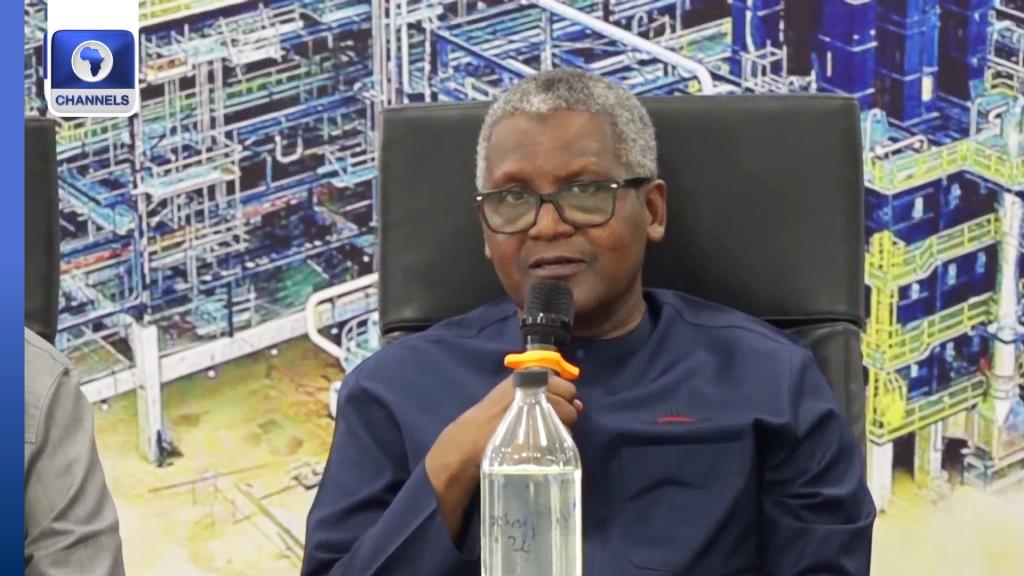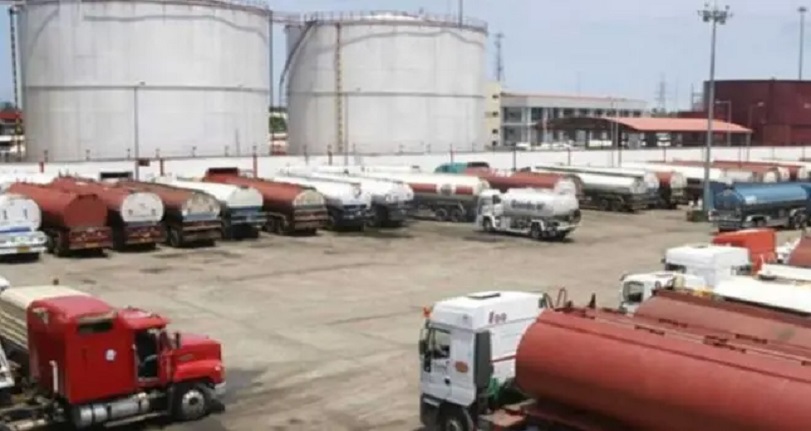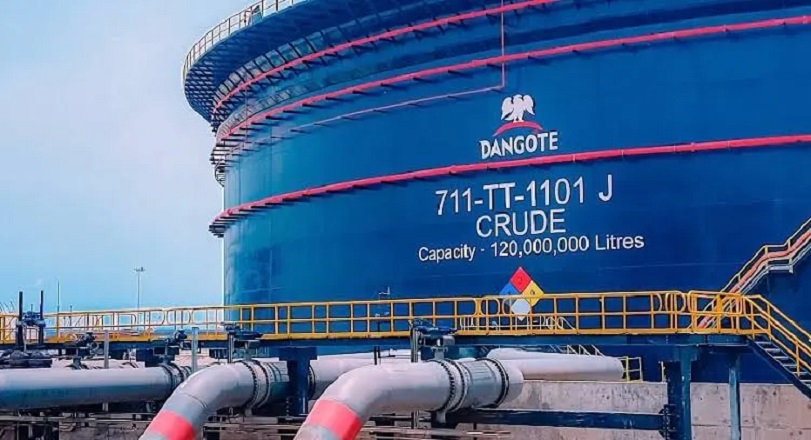Economy
Dangote Refinery to Commence Operations, Gets First Crude Batch
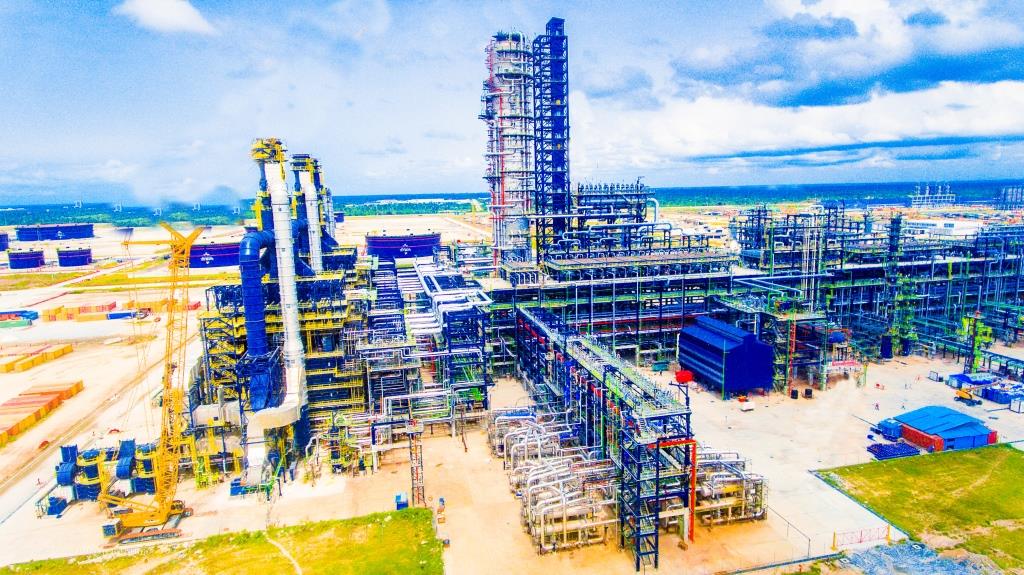
Economy
Customs Rakes in N7.28trn Revenue in 2025, Beats Projection by 12%

By Adedapo Adesanya
The Nigeria Customs Service (NCS) said it beat its projected revenue collections for 2025 by 12 per cent as it stood at N7.28 trillion.
This was disclosed by the Comptroller General of the Service, Mr Adewale Adeniyi, who gave the scorecard at an event to mark the 2026 World Customs Day on Monday, explained that the reported revenue exceeded earlier projected N6.5 trillion.
Mr Adeniyi noted that last year showed very clearly what “protecting society” looks like in the real world, noting that officers of the Command uncovered 16 containers of contraband goods in the period under review.
“Across our Commands, officers working with sister agencies disrupted multiple criminal supply chains before they ever reached our communities.
“At Apapa, we uncovered 16 containers of prohibited goods worth over N10 billion — a single operation that combined narcotics, expired pharmaceuticals, and concealed firearms.
“At the airports, officers intercepted over 1,600 exotic birds being trafficked without CITES permits, stopping a wildlife crime operation that would have harmed both biodiversity and Nigeria’s international obligations”, the statement said, adding that across land borders, its teams seized illicit narcotics and counterfeit medicines worth hundreds of millions of Naira, along with ammunition and other prohibited items moving through covert routes.
“These operations do not make headlines for long, but their impact is enduring as fewer young people exposed to harmful drugs; fewer weapons reaching criminal networks; fewer counterfeit medicines reaching patients; fewer endangered species removed from the ecosystem”.
The Service also said it recorded over 2,500 seizures, with an aggregate value of more than N59 billion in prohibited and harmful goods removed from circulation nationwide.
These seizures, it noted, cut across narcotics, counterfeit pharmaceuticals, wildlife products, arms and ammunition, petroleum products, vehicles, and substandard consumer goods.
“This most certainly prevented real harm — addiction, unsafe treatment, violent crime, subsidy, exploitation, environmental degradation, and treaty violations and funerals before they occur”, he stated.
The NCS also said vigilance coexists with facilitation.
“A modern Customs administration must be able to detect high-risk consignments without suffocating lawful trade”, it said, adding that the launch of the Time Release Study is significant.
“The TRS marks a major step toward making Nigeria’s trade gateways secure, efficient, predictable, and globally competitive.
“It signals our commitment to move from opinion-driven reforms to evidence-based reforms, and from complaints-driven policy to data-driven policy”.
The Study conducted at Tincan Island Port provides the most comprehensive measurement of clearance performance in our recent history. It reveals encouraging realities and uncomfortable truths.
It shows, on the one hand, that examination times themselves are relatively efficient, and that Nigeria has the capacity to clear goods quickly.
“It shows, on the other hand, that excessive idle periods—often due to fragmented scheduling, manual documentation, and poor coordination—extend clearance times unnecessarily and erode competitiveness. In other words, our challenge is not that we cannot move goods fast; it is that goods are not allowed to move fast.”
“We now have validated clearance timelines covering more than 600 declarations, combining manual timestamps and platform data.
“We now know with precision how long it takes from booking for examination to physical gate exit, and where bottlenecks concentrate. Armed with such evidence, we are now able to say: the fastest way to protect Nigerian traders and our economy is both through border security and procedural reform”, the service added.
Economy
Linkage Assurance Seeks Listing Approval for N16.3bn Rights Issue

By Aduragbemi Omiyale
An application for approval and listing of a rights issue of 12.2 billion ordinary shares of Linkage Assurance Plc on the Nigerian Exchange (NGX) Limited has been submitted.
The underwriting firm filed the application through its stockbrokers, Apel Asset Limited and Capital Express Securities Limited.
The company wants to offer to existing shareholders a total of 12,320,000,000 ordinary shares of 50 Kobo each at a unit price of N1.32.
The qualification date for the offering is Thursday, January 22, 2026, and it is on the basis of two new ordinary shares for every three held.
“Trading license holders are hereby notified that Linkage Assurance Plc has through its stockbrokers, Apel Asset Limited and Capital Express Securities Limited, submitted an application to Nigerian Exchange Limited for the approval and listing of a rights issue of 12,320,000,000 ordinary shares of 50 Kobo each at N1.32 per share on the basis of two new ordinary shares for every three existing ordinary shares held as at the close of business on Thursday, January 22, 2026.
“The qualification date for the rights issue is today, Thursday, January 22, 2026,” a circular signed by the Head of Issuer Regulation Department of the exchange, Mr Godstime Iwenekhai, stated.
Economy
NNPC/Chevron Awodi-07 Discovery Boosts Nigeria’s Oil Production Hopes
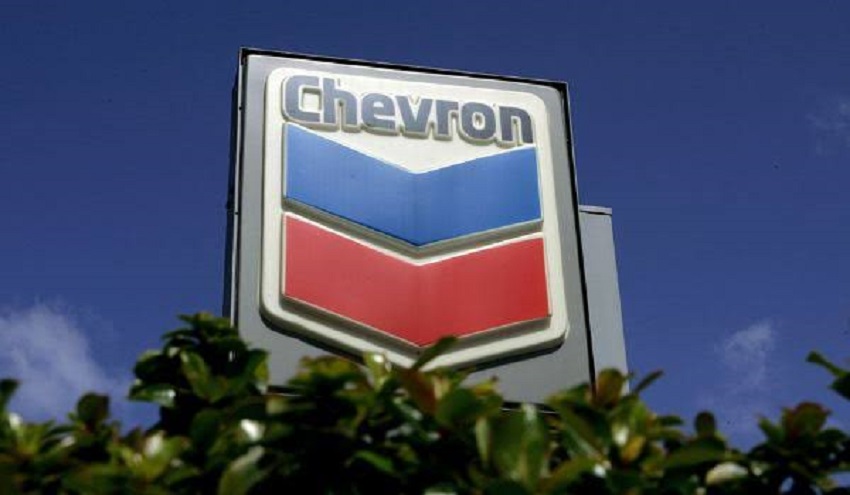
By Adedapo Adesanya
Nigeria’s push to raise crude oil production to an ambitious three million barrels per day has received a fresh boost following the successful Awodi-07 discovery by Chevron Nigeria Limited (CNL).
In a statement on Monday, the Nigerian National Petroleum Company (NNPC) Limited congratulated Chevron Nigeria Limited (CNL), operator of the NNPC Limited/CNL Joint Venture, on the successful completion of the Awodi-07 appraisal and exploration well located in the shallow offshore western Niger Delta.
Drilling activities, which ran from late November to mid-December 2025, were completed safely and in line with regulatory and operational standards. The encouraging results reinforce confidence in the asset’s potential and strengthen the reserve base required to support Nigeria’s long-term production growth ambitions.
“Results from the well are highly encouraging, confirming a significant presence of hydrocarbons across multiple reservoir zones,” the statement signed by Mr Andy Odeh, NNPC’s Communications Officer said.
Commenting on the achievement, the Group Chief Executive Officer of NNPC, Mr Bayo Ojulari, commended Chevron Nigeria Limited for its operational excellence, technical competence, and consistent delivery of value.
“The success of the Awodi-07 well further reinforces the strength of the NNPC Ltd/CNL Joint Venture and our shared commitment to responsibly growing Nigeria’s hydrocarbon reserves. This achievement aligns squarely with our strategic priorities of increasing production, enhancing national energy security, and delivering sustainable value for the Nigerian people,” he said.
Also speaking on the milestone, the Executive Vice President, Upstream, NNPC Ltd, Mr Udy Ntia, described the Awodi-07 results as a clear demonstration of the value of sustained collaboration, technical rigour, and a stable, enabling operating environment.
“This discovery underscores the importance of disciplined exploration programmes, strong partnerships, and the positive impact of the reforms introduced under the Petroleum Industry Act. We look forward to working closely with Chevron Nigeria Limited to mature this opportunity and progress it towards timely development and monetisation,” he added.
The state oil company and and Chevron Nigeria work together under a joint venture agreement to operate several oil and gas fields in Nigeria’s Niger Delta. In this partnership, Chevron owns 40 per cent of the assets, while NNPC Limited holds the remaining share. The arrangement allows both companies to combine resources, expertise, and investment to develop Nigeria’s oil and gas resources more effectively.
Through this collaboration, both aim to increase oil production to about 146,000 barrels per day, which would support government revenue, create jobs, and contribute to the country’s energy supply.
For Nigeria, which has consistently stated its intention to ramp up output to three million barrels per day in the medium term, discoveries such as Awodi-07 are critical. Beyond adding to proven reserves, they provide a pathway to new developments that can offset natural decline from mature fields.
-

 Feature/OPED6 years ago
Feature/OPED6 years agoDavos was Different this year
-
Travel/Tourism9 years ago
Lagos Seals Western Lodge Hotel In Ikorodu
-

 Showbiz3 years ago
Showbiz3 years agoEstranged Lover Releases Videos of Empress Njamah Bathing
-

 Banking8 years ago
Banking8 years agoSort Codes of GTBank Branches in Nigeria
-

 Economy3 years ago
Economy3 years agoSubsidy Removal: CNG at N130 Per Litre Cheaper Than Petrol—IPMAN
-

 Banking3 years ago
Banking3 years agoSort Codes of UBA Branches in Nigeria
-

 Banking3 years ago
Banking3 years agoFirst Bank Announces Planned Downtime
-

 Sports3 years ago
Sports3 years agoHighest Paid Nigerian Footballer – How Much Do Nigerian Footballers Earn



